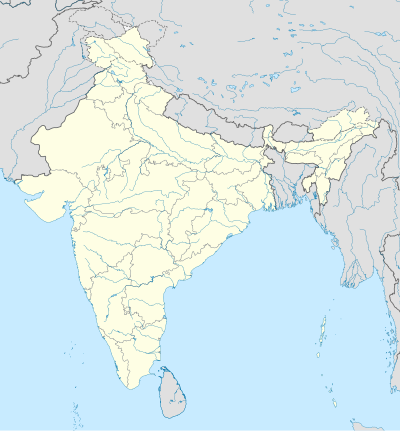Our website is made possible by displaying online advertisements to our visitors.
Please consider supporting us by disabling your ad blocker.
Nuclear power in India
This article needs to be updated. (September 2023) |
Nuclear power is the fifth-largest source of electricity in India after coal, hydro, solar and wind. As of November 2024[update], India has 24 nuclear reactors in operation in 8 nuclear power plants, with a total installed capacity of 8,180 MW.[1][2] Nuclear power produced a total of 48 TWh in 2023, contributing around 3% of total power generation in India.[3] 11 more reactors are under construction with a combined generation capacity of 8,700 MW.
In October 2010, India drew up a plan to reach a nuclear power capacity of 63 GW in 2032.[4] However, following the 2011 Fukushima nuclear disaster, there have been numerous anti-nuclear protests at proposed nuclear power plant sites.[5] There have been mass protests against the Jaitapur Nuclear Power Project in Maharashtra and the Kudankulam Nuclear Power Plant in Tamil Nadu, and a proposed large nuclear power plant near Haripur was refused permission by the Government of West Bengal.[5] A Public Interest Litigation (PIL) has also been filed against the government's civil nuclear programme at the Supreme Court.[5][6]
India has been making advances in the field of thorium-based fuels, working to design and develop a prototype for an atomic reactor using thorium and low-enriched uranium, a key part of India's three stage nuclear power programme.[7]
- ^ "Kudankulam nuclear plant begins power generation". Mumbai Mirror. 22 October 2013. Retrieved 29 January 2014.
- ^ "India Installed Capacity" (PDF). Archived from the original (PDF) on 20 May 2018. Retrieved 5 June 2018.
- ^ "Home". Nuclear Power Corporation of India Limited. Retrieved 8 March 2022.
- ^ "India eyeing 64,000 MW nuclear power capacity by 2032: NPCIL". The Economic Times. 11 October 2010.
- ^ a b c Siddharth Srivastava (27 October 2011). "India's Rising Nuclear Safety Concerns". Asia Sentinel.
- ^ Ranjit Devraj (25 October 2011). "Prospects Dim for India's Nuclear Power Expansion as Grassroots Uprising Spreads". Inside Climate News.
- ^ Pham, Lisa (20 October 2009). "Considering an Alternative Fuel for Nuclear Energy". The New York Times.
Previous Page Next Page



